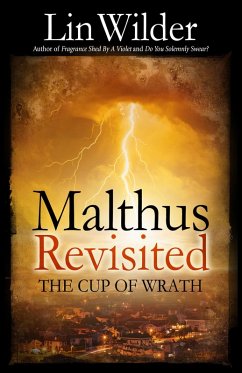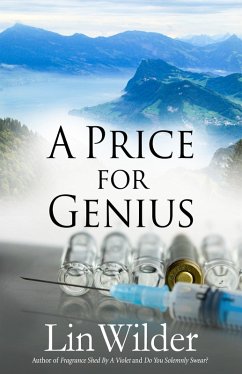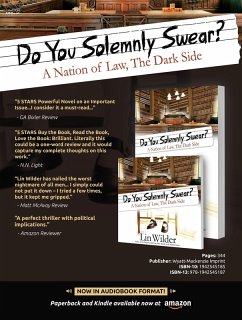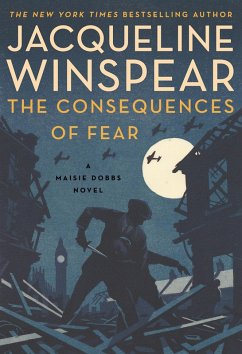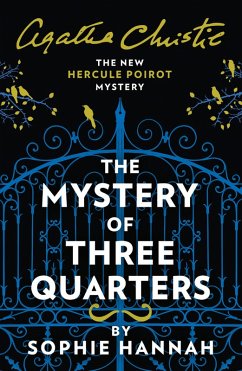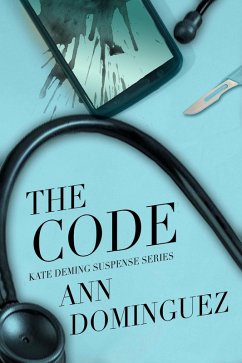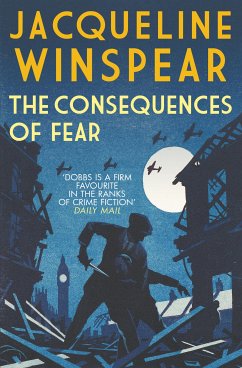
The Fragrance Shed By A Violet (Lindsey McCall Medical Mystery, #1) (eBook, ePUB)
Versandkostenfrei!
Sofort per Download lieferbar
3,99 €
inkl. MwSt.
Weitere Ausgaben:

PAYBACK Punkte
0 °P sammeln!
Why would a Houston DA prosecute a famous physician for using her own experimental drug to try and save the life of her dying mother; that is the question that baffles investigative reporter Kate Townsend. When Townsend discovered the on-line notice about the murder conviction and imprisonment of renowned Texas Medical Center Cardiologist, Dr. Lindsey McCall, she was aware that criminal prosecution of doctors for medical decisions undertaken to treat their patients is not just unusual but rare. Once she learned that the indictment of McCall was a first in the state of Texas, she was sure that ...
Why would a Houston DA prosecute a famous physician for using her own experimental drug to try and save the life of her dying mother; that is the question that baffles investigative reporter Kate Townsend. When Townsend discovered the on-line notice about the murder conviction and imprisonment of renowned Texas Medical Center Cardiologist, Dr. Lindsey McCall, she was aware that criminal prosecution of doctors for medical decisions undertaken to treat their patients is not just unusual but rare. Once she learned that the indictment of McCall was a first in the state of Texas, she was sure that this story would be the biggest she had ever pursued. Racing against the clock to get McCall's story to print before it is discovered by competing reporters, Kate persuades her editor and the owners of her newspaper to fund her investigation. And she jumps on a plane to Switzerland to interview billionaire CEO of Andrews, Sacks, and Levine, the pharmaceutical company currently manufacturing McCall's now FDA approved drug, Digipro: A drug which is expected to revolutionize the treatment of heart failure once it hits the market. But the reporter quickly learns that this story is much more complex and challenging than of the others she has ever done: Hank Reardon teaches Kate infinitely more than the complex and controversial relationships between academic medicine and the pharmaceutical industry. During her five-day stay with Reardon at his home in Lausanne, Kate's skills at assimilating prodigious amounts of multifaceted and convoluted information are tested in ways that bring her to her knees. Kate had argued and won support for her notion that McCall's conviction for murder warranted an investigative series dealing with what she called the black box of academic clinical research. It was based on a gut feeling that Lindsey McCall was a lightning rod for a convoluted mix of massive cultural, social and political changes in which McCall had become ensnared. Not only does Reardon arm the reporter with support for her theory, but he also provides compelling academic corroboration from a colleague who has written extensively about the sociology of medicine and American culture. But when her series of articles, Murder in the Texas Medical Center, is awarded the Pulitzer Prize, Kate is haunted by the knowledge that her new-found fame has been purchased at too high a price; Townsend is sure that McCall is not guilty of murder.
Dieser Download kann aus rechtlichen Gründen nur mit Rechnungsadresse in A, B, CY, CZ, D, DK, EW, E, FIN, F, GR, H, IRL, I, LT, L, LR, M, NL, PL, P, R, S, SLO, SK ausgeliefert werden.




